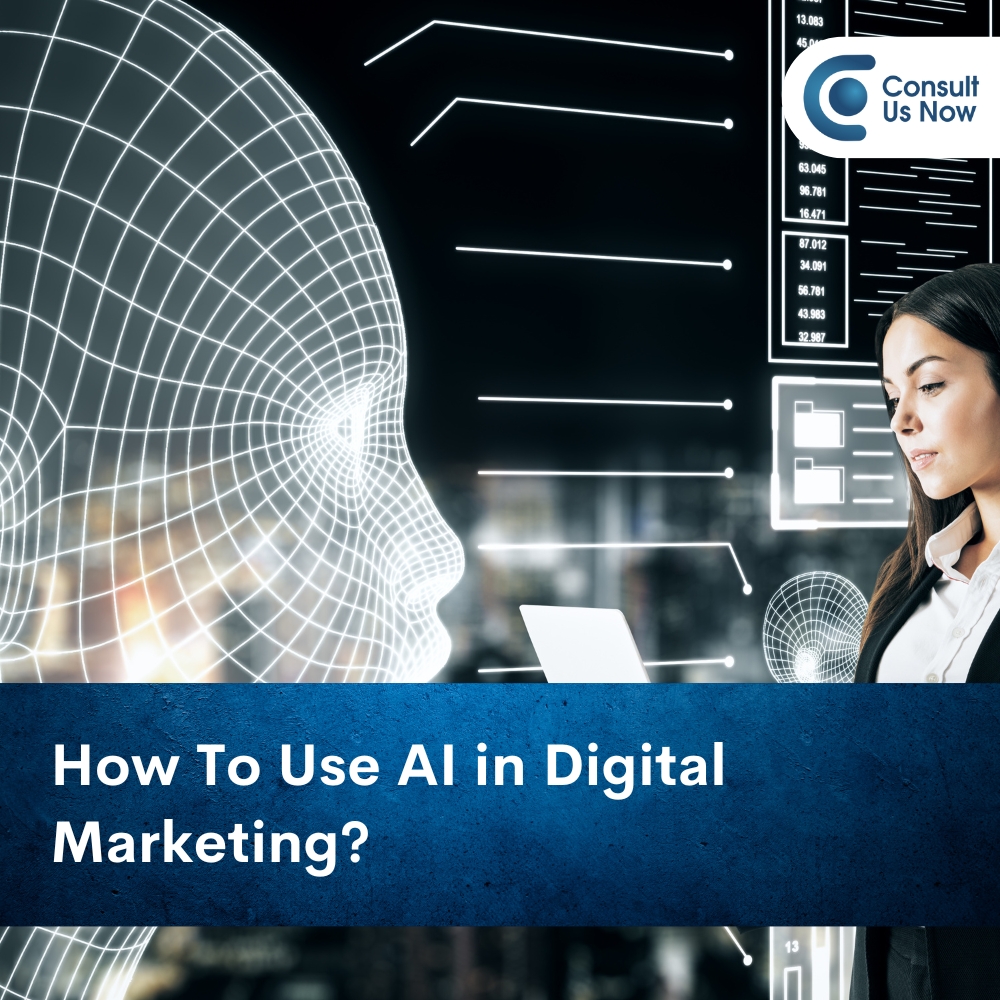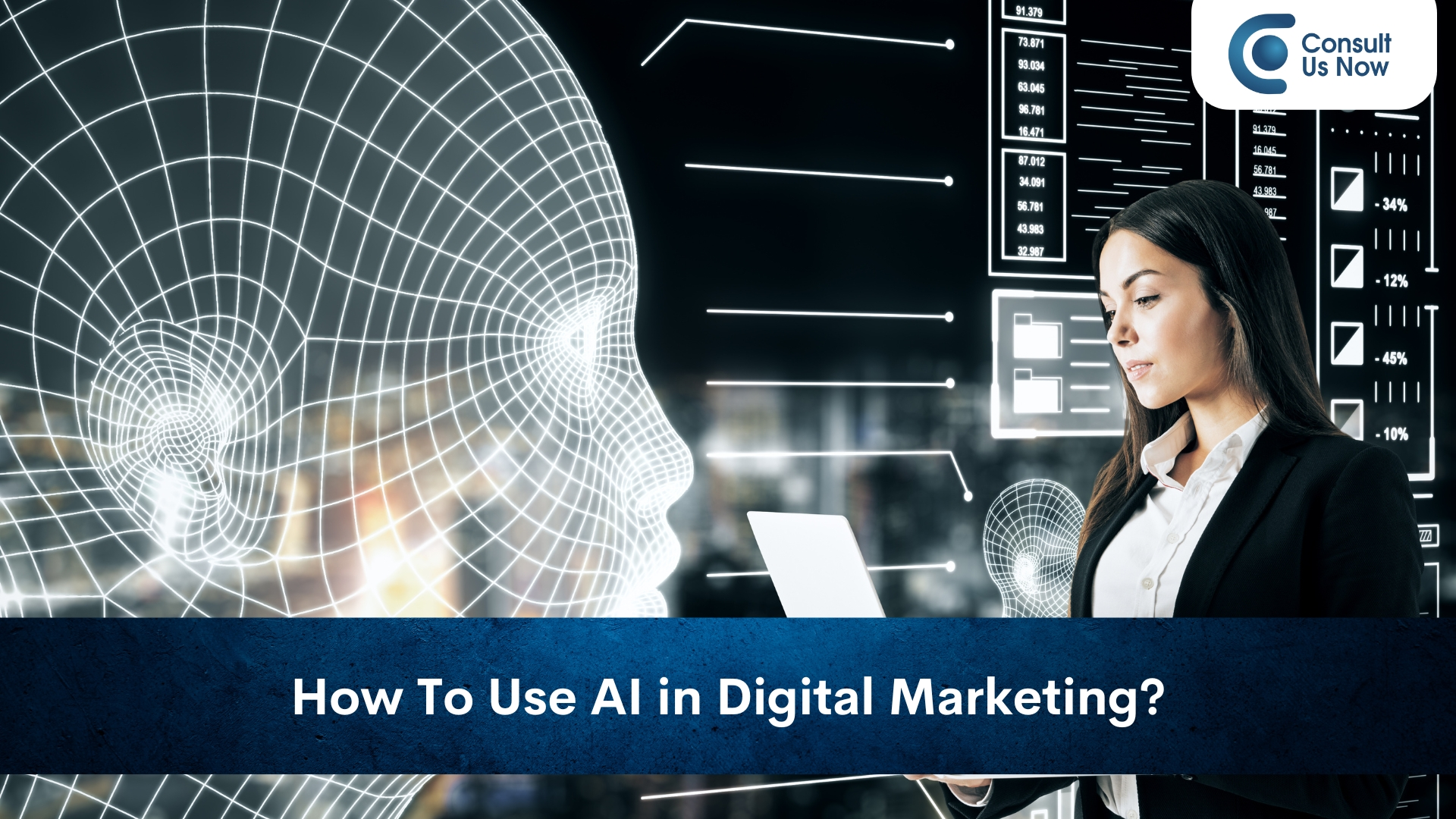Introduction
Understanding AI in Digital Marketing
Key Applications of AI in Digital Marketing
1. Data Analysis and Insights:
One of AI’s primary strengths lies in its ability to process and analyze large volumes of data quickly and accurately. AI-powered analytics platforms can extract valuable insights from diverse data sources, including customer interactions, website behavior, and social media engagement. By analyzing this data, marketers can:
- Identify patterns and trends to inform strategic decision-making.
- Segment audiences based on demographics, behaviors, and preferences.
- Predict future trends and consumer behaviors.
- Gain actionable insights to optimize marketing strategies and campaigns.
2. Personalization and Customer Experience:
Personalization has become a cornerstone of effective digital marketing, and AI plays a crucial role in enabling personalized experiences at scale. By leveraging AI-driven personalization tools, marketers can:
- Analyze customer data to understand individual preferences and behaviors.
- Deliver tailored content and recommendations based on user interests and interactions.
- Implement chatbots and virtual assistants to provide personalized customer support.
- Optimize email marketing campaigns with personalized subject lines, content, and timing.
3. Content Creation and Optimization:
Content marketing is essential for engaging audiences and driving conversions, and AI has transformed the way content is created, curated, and optimized. AI-powered content tools allow marketers to:
- Generate high-quality content automatically using natural language processing (NLP) algorithms.
- Optimize content for search engines by analyzing keywords, trends, and user intent.
- Personalize content recommendations based on individual preferences and behaviors.
- Automate A/B testing and optimization to improve content performance.
To create unique and engaging content, you can get professional help from the ROI Driven Digital Marketing Agency in Chennai.
4. Predictive Analytics and Forecasting:
Predictive analytics leverages AI algorithms to forecast future outcomes based on historical data and trends. In digital marketing, predictive analytics can be used for:
- Anticipating customer behavior and preferences to personalize marketing efforts.
- Forecasting sales trends and identifying opportunities for revenue growth.
- Optimizing ad spend by predicting the performance of different marketing channels.
- Tailoring product recommendations and promotions to individual customers.
5. Marketing Automation:
Automation is essential for streamlining marketing workflows and maximizing efficiency, and AI-powered automation tools offer advanced capabilities for marketers. With AI-driven marketing automation, marketers can:
- Automate email marketing campaigns, lead nurturing sequences, and customer follow-ups.
- Schedule social media posts, analyze engagement metrics, and optimize content distribution.
- Implement programmatic advertising strategies for targeted ad placement and bidding.
- Streamline CRM processes, such as lead scoring, segmentation, and personalized messaging.
You can also read our blog about Top 10 AI Marketing Tools to Grow Your Business in 2024 for more details about AI marketing tools.
Implementing AI in Your Digital Marketing Strategy
While the potential benefits of AI in digital marketing are vast, successful implementation requires careful planning and execution. Here’s a step-by-step guide to integrating AI into your digital marketing strategy effectively:
1. Define Clear Objectives:
Start by defining clear objectives and KPIs that align with your business goals. Whether it’s increasing brand awareness, driving website traffic, or generating leads, having specific targets will guide your AI implementation strategy and measure its success.
2. Choose the Right Tools and Technologies:
Research and invest in AI-powered tools and platforms that address your marketing needs. Whether you’re focusing on data analysis, personalization, content optimization, or automation, there are numerous AI solutions available in the market designed to enhance different aspects of your marketing strategy. Reach out to the Best SEO Company In Chennai to know more about the AI tools for your marketing needs.
3. Collect and Analyze Data:
Data is the foundation of AI-driven marketing initiatives, so it’s essential to collect relevant data from various sources, including website analytics, CRM systems, and social media platforms. Use AI-powered analytics tools to extract actionable insights and identify trends that can inform your marketing decisions.
4. Experiment and Iterate:
Embrace a culture of experimentation and continuous improvement when implementing AI in your marketing strategy. Test different AI algorithms, messaging variations, and campaign strategies to identify what works best for your target audience. Monitor key metrics closely and iterate based on performance feedback.
5. Ensure Ethical Use of AI:
As AI becomes increasingly integrated into marketing processes, it’s crucial to prioritize ethical considerations and data privacy. Ensure compliance with regulations such as GDPR and CCPA, and prioritize transparency and consent when collecting and utilizing customer data. Additionally, mitigate the risk of algorithmic bias by regularly auditing and refining your AI models.
Real-World Examples of AI in Digital Marketing
To illustrate the practical applications of AI in digital marketing, let’s explore a few real-world case studies:
1. Netflix:
Netflix leverages AI algorithms to analyze user data and personalized content recommendations. By analyzing viewing history, ratings, and user interactions, Netflix’s recommendation engine suggests relevant movies and TV shows to each subscriber, thereby enhancing user engagement and retention.
2. Spotify:
Spotify utilizes AI-powered algorithms to curate personalized playlists and recommendations for its users. By analyzing listening habits, music preferences, and contextual data, Spotify delivers tailor-made playlists that cater to each user’s taste and mood, fostering deeper connections and engagement with the platform.
3. Amazon:
Amazon employs AI-driven product recommendations to enhance the shopping experience for its customers. By analyzing purchase history, browsing behavior, and demographic data, Amazon’s recommendation engine suggests relevant products to users, driving incremental sales and improving customer satisfaction.
Conclusion
In conclusion, AI has emerged as a game-changer in the field of digital marketing, enabling marketers to analyze data, personalize experiences, automate tasks, and optimize campaigns with unprecedented precision and efficiency. By harnessing the power of AI technologies, businesses can gain a competitive edge, drive customer engagement, and achieve their marketing objectives in today’s fast-paced digital landscape. However, successful AI implementation requires careful planning, experimentation, and ethical considerations to ensure sustainable growth and long-term success in the digital realm.
With the rapid advancements in AI technologies and the ever-evolving nature of digital marketing, businesses must stay abreast of the latest trends and innovations to remain competitive and relevant in their respective industries. By embracing AI as a strategic ally in their marketing endeavors, businesses can unlock new opportunities, drive business growth, and deliver exceptional experiences that resonate with their target audience in the digital age.





